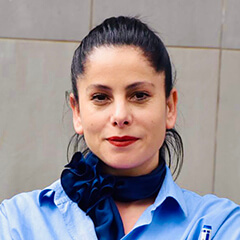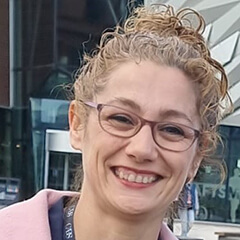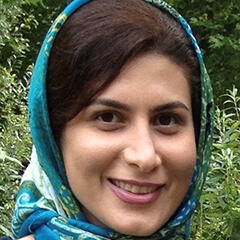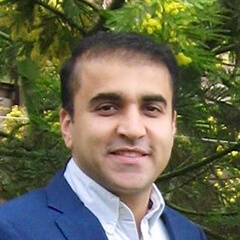A Framework for Educators - Leveraging AI
Publication date: 18 Nov 2025
Project lead Dr Eleni Meletiadou reflects on how this project embedded ethical, inclusive, and sustainable AI practices into teaching, creating lasting sector-wide impact.
"Being involved in this Collaborative Enhancement Project was transformative personally and professionally. It deepened my commitment to equity, ethics, and sustainability in pedagogy and enabled me to lead complex international initiatives, expanding my research portfolio and demonstrating the leadership expected of a full professorship.
The project’s alignment with the UN Sustainable Development Goals provided a clear framework for measuring impact and demonstrating wider societal significance.
Institutionally, the AI-ESD Framework and annotated resources are adopted in staff development and curriculum review. These offer a practical structure for academic teams to evaluate and enhance digital practices through a sustainability lens, enabling more confident, informed AI experimentation guided by ethical and pedagogical understanding.

A key output for the Collaborative Enhancement Project is the development of evidence-informed principles and frameworks for effective use of Gen AI to enhance learning, teaching, and assessment designs and practices promoting ESD. Separate frameworks have been written for educators and for students.
Publication date: 18 Nov 2025
Publication date: 18 Nov 2025
Publication date: 18 Nov 2025
Publication date: 18 Nov 2025
Publication date: 18 Nov 2025
Publication date: 18 Nov 2025
Dr Eleni Meletiadou is a RILEAS and GEDI Research Group Director at the Guildhall School of Business and Law. Eleni’s responsibilities involve strategic leadership to enhance student learning experience and staff professional and research development. Her personal mission is to make Education for Social Justice and Sustainable Development meaningful, accessible, and transformative for ALL students.
 Dr Teuta Hazizi, University of Elbasan “Aleksandër Xhuvani”, Albania
Dr Teuta Hazizi, University of Elbasan “Aleksandër Xhuvani”, Albania
Dr Teuta Hazizi is a lecturer at the Business Administration Department, Faculty of Economy at University of Elbasan “Aleksandër Xhuvani” in Albania. Her research interests include Education for Sustainable Development, gender equality, entrepreneurship, inclusion and digital leadership.
 Dr Thomais Rousoulioti, Aristotle University, Greece
Dr Thomais Rousoulioti, Aristotle University, Greece
Dr Thomais Rousoulioti is a Lecturer at Aristotle University in Greece. Her research interests include Education for Sustainable Development, gender equality, cultural studies, multilingualism and inclusion and applied linguistics.
 Dr Sirvan Karakis, Coventry University
Dr Sirvan Karakis, Coventry University
 Dr Somayeh Pouransari, University of Hertfordshire
Dr Somayeh Pouransari, University of Hertfordshire
Dr Somayeh Pouransari is a Senior lecturer in Human Resource Management and Information Systems at the University of Hertfordshire. Her research interests include Education for Sustainable Development, gender equality, HRM and digital literacy.
 Dr Reza Naji, University of Hertfordshire
Dr Reza Naji, University of Hertfordshire
 Dr Mirela Alhasani, Epoka University, Albania
Dr Mirela Alhasani, Epoka University, Albania
Dr Mirela Alhasani (Dubali) is a Senior Lecturer of (English) Linguistics and Politics at the Centre for European Studies, at Epoka University in Albania. Her research focuses on Education for Sustainable Development, the linguistic educational transformation of developing democracies, gender equality, inclusion, EU language politics, and applied linguistics.
 Dr Irini Papakammenou, University of Staffordshire
Dr Irini Papakammenou, University of Staffordshire
Dr. Irini Papakammenou is a Lecturer at University of Staffordshire. Her research interests include Education for Sustainable Development, cultural studies, inclusion and applied linguistics.
QAA supports a number of projects every year, covering a range of topics and interest areas. Each is led by a QAA Member, working in collaboration with other members institutions. You can find more information on all projects, and access resources and outputs, on our website.